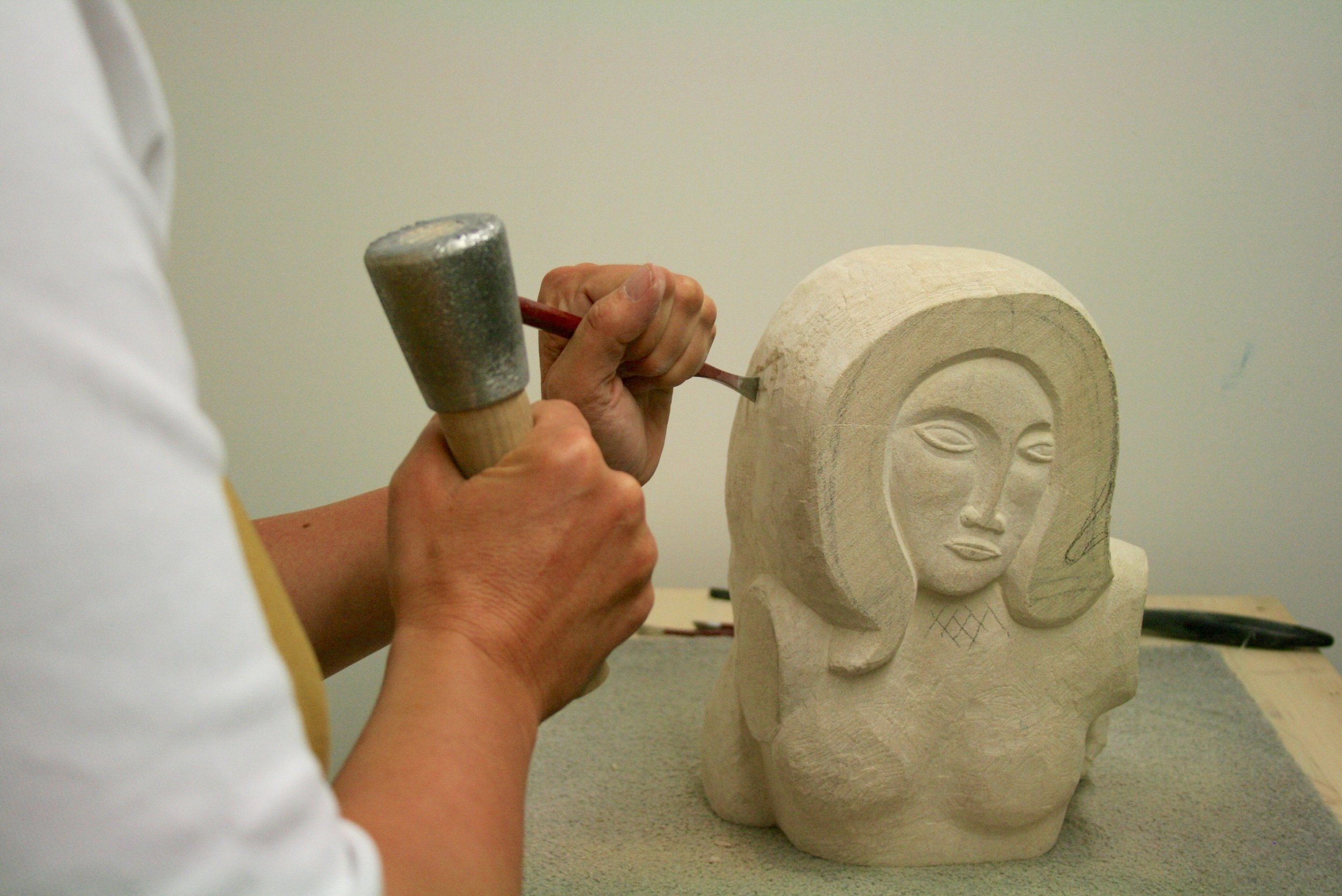In Conversation with Judith Pollock
Mathematician and engineer of 26 years becomes passionate stone carver
Judith Pollock in her studio on Spare Street
This week on the blog, we would like to introduce you to Hotel Elephant Member Judith Pollock.
Originally, Judith is from Birmingham. She moved to London over 16 years ago for her job at the time. What that job was, you may ask? Well, it is hard to believe when looking at Judith's creative, artistic, and beautiful stone carvings that she originally graduated with a degree in Maths and Physics. After 26 years as an engineer, Judith left her job in 2016 to follow her passion - stone carving.
Judith did a course with stone carver Tom Clark in his Somerset studios and discovered her passion to work in 3D rather than expressing her creativity through drawing or painting. She went on to study for an art diploma from West Dean College in Chichester. Currently, she is developing her practice and is starting to grow this passion project into a career.
Judith is also a trustee of The Hunger Project, a charity committed to the sustainable end of world hunger. In order to raise funds for the organisation, Judith auctioned off one of her works in December 2017. 100% of the money benefited The Hunger Project.
Judith Pollock working on 'Ancaster Woman'
We met Judith in her studio at Hotel Elephant, Spare Street to find out more about her practice, her studio space and to get her tips for everyone interested in a career in sculpture or stone carving.
What do you like the most about Hotel Elephant?
It’s a fantastic opportunity to be part of a community, and to finally meet like-minded people. I come from a very different background and it has been amazing to be surrounded by other creatives.
Also, from a practical point of view, the studio is ideal to satisfy my needs in terms of space and to provide me with all that I need to work and be creative.
Judith Pollock's Workspace at Hotel Elephant
What is it exactly you use your studio for?
I use it for carving and also as a bit as an office. I do a lot of my research here. It is a quiet space, where I can work on ideas without too many distractions. It helps me keep focussed. At home it can be hard to balance creative time with other work & household errands, etc. It’s also quite practical to have a dedicated space to work as stone carving can be quite messy – definitely not apt to be done at home - and big enough to carve and store tools.
Where do you get inspiration?
I spend some time going to exhibitions and looking at other people’s work. When you come from a field as different as mathematics and engineering, you have to figure out what inspires you. It is a process to find out what you like visually – it’s good to just walk around and see what grabs your attention. I used to be a very keen photographer, so in the beginning I also used to look back at my photographs to find inspiration.
I collect all these photos or images taken from exhibitions on my 'wall of inspiration' in my studio. I also have a corner where I collect interesting stones – those I will work on in the future, I still don’t know what they will be.
Do you think collaboration in important in this field?
Yes, especially if you think about making something to sell. Collaboration opens your mind and gives you ideas both artistically and businesswise. Lately, I’ve been collaborating with a friend who works with metal – we spent a weekend together, talked about how to combine the two things and came up with a few very interesting ideas.
Judith Pollock's wall of inspiration
Do you have any advice or tips?
Take the time to figure out what you like and what’s your style. Don’t put yourself on the market too soon. I think that this can lead you away from the actual practice and narrow your focus too much. It’s also important to get the right balance between artistic practice and the business side, which can be different for everyone, but it’s important to find a good compromise that works for you.






